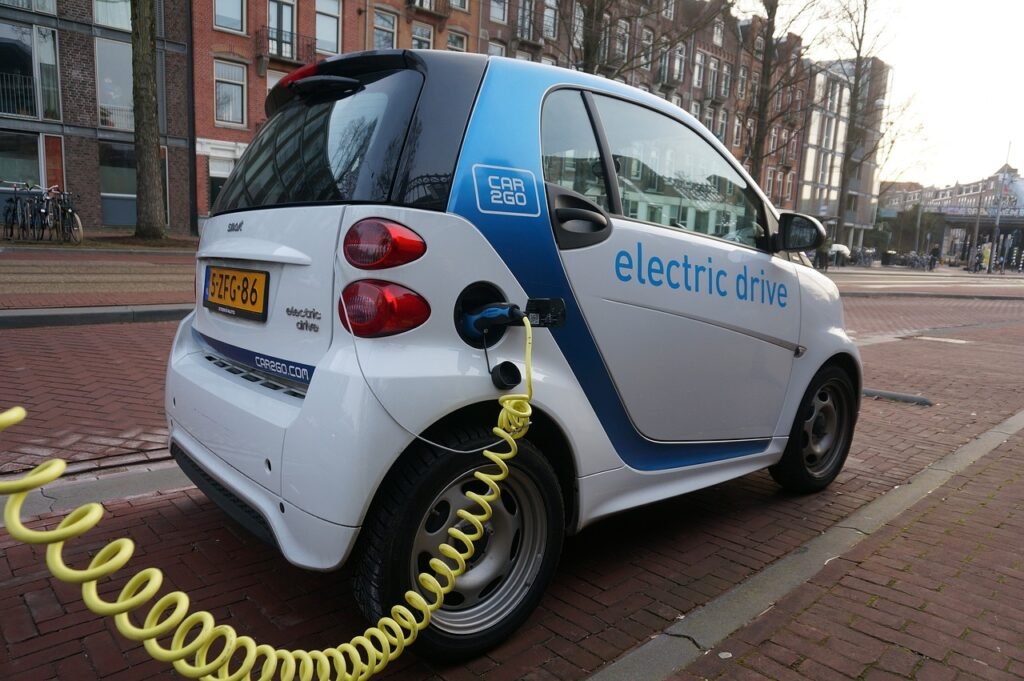Welcome to this article that explores the question of whether electric vehicles can be used for sustainable delivery and logistics. As the world shifts towards more sustainable practices, businesses are increasingly looking for ways to reduce their carbon footprint. Electric vehicles offer a promising alternative to traditional delivery vehicles, with lower emissions and operating costs. Let’s delve into the potential benefits and challenges of using electric vehicles for delivery and logistics. Can Electric Vehicles Be Used For Sustainable Delivery And Logistics?
Have you ever wondered if electric vehicles can be a viable option for sustainable delivery and logistics? In today’s world where environmental concerns are at the forefront, many businesses are looking for ways to reduce their carbon footprint. Electric vehicles offer a promising solution, but are they practical for delivery and logistics operations? Let’s explore the possibilities and benefits of using electric vehicles in delivery and logistics.

The Rise of Electric Vehicles in the Transportation Industry
Electric vehicles have been gaining popularity in recent years as a more environmentally friendly alternative to traditional gasoline-powered vehicles. With advancements in technology and infrastructure, electric vehicles have become more accessible and practical for daily use. The transportation industry has seen a significant shift towards electric vehicles, with many companies and individuals choosing electric cars for their personal and professional needs.
The Environmental Benefits of Electric Vehicles
Electric vehicles have several environmental benefits that make them an attractive option for sustainable delivery and logistics. Unlike gasoline-powered vehicles, electric vehicles do not produce tailpipe emissions that contribute to air pollution and greenhouse gas emissions. By using electric vehicles for delivery and logistics operations, businesses can reduce their carbon footprint and help protect the environment.
The Cost-Saving Potential of Electric Vehicles
While electric vehicles may have a higher upfront cost compared to traditional gasoline-powered vehicles, they can offer long-term cost savings. Electric vehicles have lower maintenance costs due to fewer moving parts and require less frequent refueling, saving businesses money on fuel expenses. Additionally, many governments offer incentives and tax credits for purchasing electric vehicles, making them a more cost-effective option in the long run.
Implementing Electric Vehicles in Delivery and Logistics Operations
Integrating electric vehicles into delivery and logistics operations may seem like a daunting task, but with careful planning and investment, businesses can successfully transition to using electric vehicles. From fleet management to charging infrastructure, there are several key considerations to keep in mind when implementing electric vehicles in delivery and logistics.
Fleet Management and Vehicle Range
One of the main challenges of using electric vehicles for delivery and logistics is managing fleet operations and ensuring that vehicles have enough range to complete their tasks. Businesses need to carefully plan routes, allocate resources efficiently, and consider the range of electric vehicles to avoid running out of battery power mid-delivery. Investing in electric vehicles with longer range capabilities can help businesses maximize their delivery efficiency and minimize downtime.
Charging Infrastructure and Accessibility
Another critical aspect of implementing electric vehicles in delivery and logistics is having the necessary charging infrastructure in place. Businesses need to install charging stations at their facilities and along delivery routes to ensure that electric vehicles can be recharged quickly and conveniently. Investing in fast-charging technology can help reduce downtime and keep delivery operations running smoothly. Additionally, businesses can explore partnerships with charging networks and utility companies to expand charging infrastructure and improve accessibility for electric vehicles.
Training and Education for Drivers
Transitioning to electric vehicles also requires providing training and education for drivers to familiarize them with the unique features and requirements of electric vehicles. Drivers need to understand how to operate electric vehicles safely, maximize their range, and utilize charging infrastructure effectively. By investing in driver education and training programs, businesses can ensure that their drivers are prepared to handle electric vehicles and optimize delivery and logistics operations.

The Benefits of Using Electric Vehicles for Sustainable Delivery and Logistics
Using electric vehicles for delivery and logistics offers numerous benefits for businesses and the environment. From reduced carbon emissions to cost savings, electric vehicles can positively impact operations and contribute to a more sustainable future. Let’s explore some of the key benefits of using electric vehicles in delivery and logistics.
Reduced Carbon Emissions and Environmental Impact
One of the most significant benefits of using electric vehicles for delivery and logistics is the reduction of carbon emissions and environmental impact. Electric vehicles produce zero tailpipe emissions, which helps reduce air pollution and greenhouse gas emissions that contribute to climate change. By transitioning to electric vehicles, businesses can significantly decrease their carbon footprint and help protect the environment for future generations.
Cost Savings and Operational Efficiency
In addition to environmental benefits, using electric vehicles for delivery and logistics can lead to cost savings and improved operational efficiency. Electric vehicles have lower maintenance costs and fuel expenses compared to gasoline-powered vehicles, resulting in long-term cost savings for businesses. By optimizing routes, managing fleet operations efficiently, and leveraging charging infrastructure, businesses can enhance their operational efficiency and drive sustainable growth.
Enhanced Corporate Social Responsibility
Using electric vehicles for delivery and logistics is a significant step towards enhancing corporate social responsibility and demonstrating a commitment to sustainability. Businesses that prioritize environmental stewardship and adopt eco-friendly practices can build a positive brand reputation, attract environmentally conscious customers, and differentiate themselves in the market. By incorporating electric vehicles into their operations, businesses can showcase their dedication to environmental sustainability and contribute to a more sustainable future.

Case Studies of Successful Implementation of Electric Vehicles in Delivery and Logistics
Several companies have successfully integrated electric vehicles into their delivery and logistics operations, showcasing the benefits and potential of electric vehicles for sustainable transportation. Let’s explore some case studies of businesses that have embraced electric vehicles and achieved success in their delivery and logistics operations.
Amazon: Embracing Electric Delivery Vans
Amazon, the e-commerce giant, has been at the forefront of adopting electric vehicles for delivery operations. In 2020, Amazon announced its commitment to electrify its delivery fleet and achieve carbon neutrality by 2040. The company has invested in electric vans from Rivian and other manufacturers, aiming to have 10,000 electric delivery vehicles on the road by 2022. By transitioning to electric vehicles, Amazon is leading the way in sustainable delivery and logistics and setting a positive example for other businesses in the industry.
UPS: Expanding Electric Vehicle Fleet
UPS, a global package delivery and logistics company, has been expanding its electric vehicle fleet to reduce emissions and improve sustainability. UPS has partnered with Workhorse Group to deploy electric delivery trucks in several cities, leveraging advanced technology and battery capabilities to enhance performance and reliability. The company has committed to increasing its investment in electric vehicles and charging infrastructure to drive sustainable growth and reduce its carbon footprint. With a focus on innovation and sustainability, UPS is demonstrating the potential of electric vehicles in delivery and logistics operations.
DHL: Innovating with Electric StreetScooters
DHL, a leading global logistics company, has been innovating with electric vehicles, such as the StreetScooter, to revolutionize last-mile delivery and reduce emissions. DHL launched its StreetScooter electric vehicles in Germany, offering an eco-friendly and cost-effective solution for urban delivery operations. The StreetScooter fleet has been instrumental in reducing emissions, improving air quality, and enhancing operational efficiency for DHL’s delivery services. By investing in electric vehicles and sustainable transportation solutions, DHL is driving innovation and leading the way towards a greener future.

Conclusion: Embracing Electric Vehicles for Sustainable Delivery and Logistics
In conclusion, electric vehicles have the potential to transform delivery and logistics operations and drive sustainability in the transportation industry. With their environmental benefits, cost-saving potential, and operational efficiency, electric vehicles offer a promising solution for businesses looking to reduce their carbon footprint and enhance their corporate social responsibility. By implementing electric vehicles, businesses can contribute to a greener future, reduce emissions, and improve sustainability in delivery and logistics operations.
So, the next time you consider the impact of your delivery and logistics operations on the environment, think about how electric vehicles can be a sustainable and eco-friendly choice for your business. Embrace the power of electric vehicles and join the movement towards a more sustainable future for delivery and logistics.


